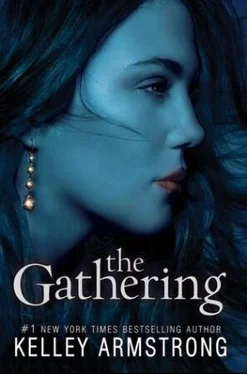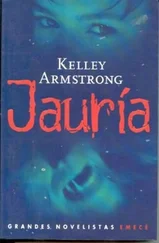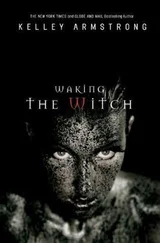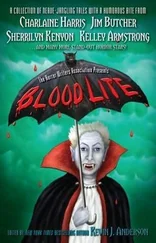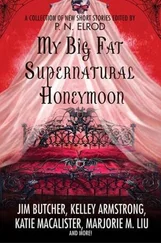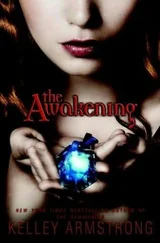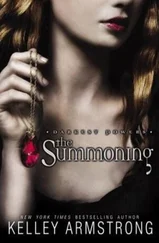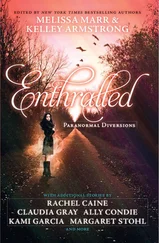By the time we got back to Annie, she was awake again and ready to walk to the cabin. She was still exhausted, though, barely saying a word, leaning against her brother. When we got there, it was exactly as I remembered it—the kind of place so rundown that hikers would use it for shelter in bad weather, presuming no one lived there.
The cabin was barely larger than my bedroom and had an outhouse. A new generator supplied electricity and a propane stove provided heat for cooking. As rustic as you could get. Clean, though, I saw as I followed Rafe inside. Probably a lot cleaner than it had been when Ed Skylark lived here.
There were two beds, little more than bunks. One was original. The other was made of new wood, as was the table and two chairs. Add a tiny fridge, and that was it for furnishings. The bed linens and plates and other stuff all looked new but were discount store quality. Clearly Rafe was making the drug dealers’ money last as long as he could.
Rafe helped Annie to the new bed, which was piled with colorful pillows and blankets. She snuggled in, saying something about being hungry, but she drifted off to sleep again before she could finish. Rafe got a health bar from a crate of groceries and a juice box from the fridge, and left them beside her bed. Then he motioned me outside.
He didn’t say another word until we were standing beside the fire pit, and even then he only said, “So …” before lapsing into silence. I lowered myself onto the log they’d been using for a fireside chair. He sat and tried sliding closer, but when I tensed, he stopped and leaned forward, elbows on his knees, staring into the forest.
“You said your mother was Hopi,” I said, pointing to the tattoo on his forearm.
He rubbed it and nodded.
“They have the skin-walker stories, too, don’t they?”
He looked over sharply, blinking.
“Yes, I know the legend,” I said. “But I’m guessing it’s more than a legend.”
“It is.” His hand came down right beside my leg, not touching. He looked down at his hand, like he was hoping I’d slide closer, give him some sign everything was okay. When I didn’t, he said, “This isn’t how I imagined it. Telling you.”
“Did you imagine telling me at all?”
His gaze shot to mine. “Yes. That’s why I asked you to come out here tonight. I knew I couldn’t wait. Shouldn’t wait. Things were happening, and you needed to know the truth, if you didn’t already.”
“Okay, so you were going to tell me tonight. Well, it’s tonight. Go on.”
He squirmed and I knew the timing didn’t matter—he’d expected this to play out differently, probably on a cliff top after a climb, sitting together, his arm around me, as he casually said, “Hey, you know how those mountain lions have been hanging around you a lot lately? Well, there’s a reason …”
“Skin-walkers,” I prompted.
“Right.”
Silence.
“I’ve only read one reference to them turning into cougars,” I said. “It’s usually wolves, coyotes, even bears.”
“It’s there, if you dig deep enough. That’s what my mom said, anyway.” He cleared his throat and sat up straighter. “What you read—that was about witches, right? Cast curses? Wear animal skins and change form?”
“Right.”
“Well, that’s not us. Mom said we probably shouldn’t even call ourselves skin-walkers, because of the confusion, but we had the name first. Real skin-walkers, like us, go back to before Columbus ‘discovered’ America. It’s a kind of supernatural race. We’re born into a family of skin-walkers. We can change into mountain lions. We get our energy from nature. We have healing powers and some control over animals.” He met my gaze. “Sound familiar?”
He reached over to put a hand on my arm, and I realized I was covered in goose bumps.
I pulled away. “Go on.”
He hesitated, then continued. “Mom was told the new kind of skin-walkers started out as assistants to the real ones, who were tribal healers and protectors. Our kind—Well, it’s a long story and I’m sure you’re not that interested yet. I can give the history lesson another time. Point is that we aren’t the skin-walkers they believe in these days. Our kind went extinct.”
“Annie doesn’t look extinct to me.”
“That’s because—” He stopped, wincing, then stretched out his legs and rubbed his calves.
“You okay?”
“Muscle pains. I’m getting them a lot lately. I think it’s close. The first Shift. Are you—?” He exhaled. “Later, right? Keep explaining. Okay. Skin-walker families lost their powers. Mom said it was a survival mechanism. They were being killed off by the new human kind of skin-walkers, and so all of a sudden, they started having kids without powers.”
“Those kids weren’t a threat, so the others left them alone.”
“Right. But some families still passed along the old stories. Like Mom’s. It was like telling your kids that your family used to be famous warriors. It didn’t mean anything anymore, but it was cool. Then these people got in touch with her. People from other skin-walker families. They said scientists had figured out a way to reactivate the gene.”
“Reactivate a skin-walker’s powers?”
“Right.”
“Why?”
He shrugged. “If we don’t have them, we feel it. Mom said it’s like being born a blind artist or a deaf musician. There’s this … drive. This itch you can’t scratch. There were people in her family who went crazy, and everyone said that was the reason. She worked her frustration out in art, but she said it was never enough. Something was always missing.”
“So they reactivated the gene. For you and Annie.”
“And others.”
“Like me.”
He nodded. “Annie was the first. When everything seemed to go fine with her, they did a full first wave of trials. They were in it together, our mothers. Of course, they worried about what might go wrong. Whether they’d done the right thing. They started getting paranoid. Then one of the mothers said she’d overheard the scientists talking about taking the babies away after they were born. So they ran.”
“All of them?”
Another nod. “They split up because they thought that would make them harder to find. Later … well, later, Mom started thinking they’d overreacted. The woman who said she overheard the scientists had already wanted to leave.”
“So maybe she made the story up. If they all went together, any efforts to find them would be split. It made it easier for her to get away.”
“Right. But when people talk about taking kids away from their parents …” He shrugged. “It brings up bad memories.”
Residential schools, he meant. I didn’t know a lot about it in the United States, but I knew it was a big issue in Canada, where, for over a hundred years, Native kids were taken from their families to live in state-funded, church-run schools.
From inside the cabin, Annie yelled, “Rafe?”
“Right here!” he called back. He got to his feet, then turned to me. “Hold on. I’ll be right back.”
“THERE WASN’T AN ACCIDENT with Annie, was there?” I said when he came back. “It’s not brain damage. Not really.”
“No.” He stared at the cabin, looking so sad that I had to resist the urge not to slide closer. “It started soon after she began Shifting. Just small things at first. Not interested in her art anymore, not interested in school, getting restless, wandering off and staying away until she was hungry. I figured it was just a combination of the Shifts and our mom’s death.”
“But it wasn’t.”
He shook his head. “It kept getting worse. She’s not … She’s not Annie anymore. I mean, she is, in some ways, but she’s … simpler.”
Читать дальше
